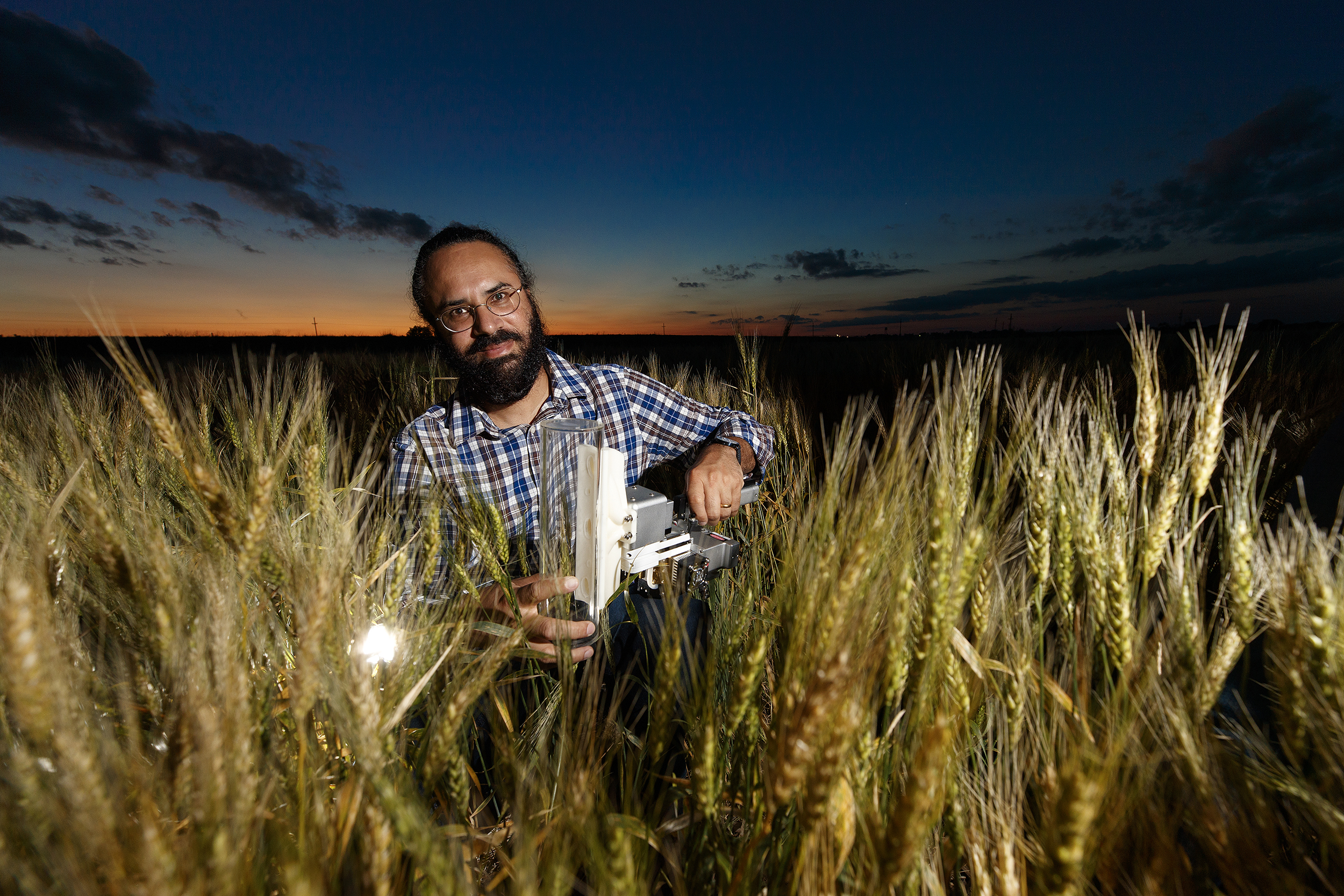
University of Nebraska–Lincoln agronomist Harkamal Walia will present the April 14 virtual Nebraska Lecture, “Changing Climate, Warmer Nights and Crop Yields.”
Part of the Chancellor’s Distinguished Lecture Series, the lecture and live Q&A will be broadcast from noon to 1 p.m. here. Viewers may submit questions for Walia to unlresearch@unl.edu before or during the lecture.
Walia is an associate professor of agronomy and a faculty fellow with the Daugherty Water for Food Global Institute, focusing on crop abiotic stress tolerance, phenomics and functional genomics. In 2019, he became Nebraska’s Heuermann Chair of Agronomy.
“Nineteen of the warmest years have occurred since 2000,” Walia said. “The year 2020 tied with 2016 for the warmest year on record. Rising global temperatures combined with erratic precipitation are posing an unprecedented challenge for human health and nutrition through extreme heat and precipitation events.
“One of the major challenges posed by high temperatures is declining crop productivity and quality. Crop yields are particularly sensitive to increasing nighttime temperatures.”
He said his lecture will present a perspective on how genetic improvements and technological advances can help address this challenge for agriculture and global food security.
Walia earned a bachelor’s degree in plant breeding and genetics from Punjab Agricultural University in India in 2000 and a doctoral degree in plant biology from the University of California, Riverside, in 2005.
His major research activities include functional characterization of heat-regulated genes during reproductive development, and genetic and physiological characterization of roots in wheat during drought stress. He also conducts comparative transcriptome analyses of cereal crops in response to a suite of abiotic stresses, elucidating the gene networks regulating early seed development and seed size in cereals.
The Nebraska Lectures are typically offered twice a year and feature faculty discussing research, scholarly and creative activity. All talks are free and open to the public and will be streamed online. Regular updates, as well as videos from each lecture, are available through the Nebraska Lectures website.
The Nebraska Lecture series is sponsored by the Research Council, Office of the Chancellor, Office of Research and Economic Development, and Osher Lifelong Learning Institute.








